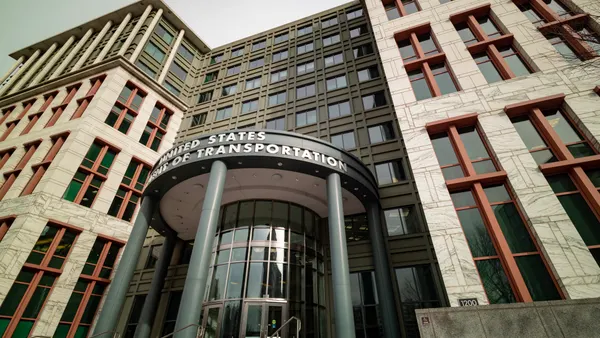Dive Brief:
- Prime has agreed to settle two misclassification lawsuits for $28 million in Oliveira v. New Prime Inc., filed in 2015, and Haworth et al v. New Prime Inc, filed in 2019. The settlement agreement calls for the two cases to be consolidated. In the former, drivers alleged the Missouri-based carrier failed to pay them for time spent in classroom orientation and driving, in violation of the Fair Labor Standards Act (FLSA) and state law. In the latter, the plaintiffs alleged Prime failed to pay B seat and C seat drivers at least minimum wage for all hours worked.
- Each of the 40,000 class members may receive at least $100, according to the agreement, which still needs a court's final approval. The settlement proposal was filed with the U.S. District Court of Massachusetts.
- The parties spent more than five years in court, a stint that included a trip to the U.S. Supreme Court over the applicability of an arbitration agreement. Prime had motioned for arbitration in 2015, which the high court affirmed in 2019 was not covered by the Federal Arbitration Act's exemption for “contracts of employment” of workers in interstate commerce.
Dive Insight:
Prime's settlement agreement involves a significant number of drivers and comes at a larger monetary cost than other recent misclassification lawsuits. At the beginning of July, J.B. Hunt agreed to settle for $6.5 million in a case with 312 drivers, and Ryder agreed to a $5 million settlement for more than 300 carriers and 600 non-carriers. But unlike Prime's case, those two lawsuits concerned drivers in California.
California has been the focal point of driver classification. The California Supreme Court's April 2018 decision in Dynamex Operations West Inc. v. Superior Court of Los Angeles resulted in the "ABC test," a set of three criteria employers must use to determine whether a worker is an independent contractor. That test is now a central aspect of the California Trucking Association's (CTA) lawsuit to nullify AB5's effect on trucking.
Missouri provides an online Worker Misclassification Assessment tool to help make the determination (though the assessment provides an evaluation, not an official determination). According to the state, employee misclassification in any industry could result in penalties of $50-$1,000 per day, per worker, or a sentence of up to six months in jail, per violation. Employers could also face penalties for unemployment taxes, as well as additional charges and fines for failing to provide workers' compensation insurance.
According to the settlement proposal, Prime has agreed to pay $7 million in non-reversionary funds to resolve claims related to unpaid classroom orientation, $3.5 million in non-reversion funds and $5 million in claims-made funds to address B seat or C seat driving, $3.5 million in non-reversionary funds and $5 million in claims-made funds to address A seat driving, and $4 million in claims-made funds for independent contractor driving.
The parties' intent when entering into an employment arrangement has little bearing on the employee versus independent contractor analysis. A U.S. Department of Labor (DOL) fact sheet on the FLSA states that an independent contractor agreement between the employer and the worker does not make an employee an independent contractor. And in 2019, an Alabama federal district court held that a signed independent contractor acknowledgment form wasn't enough for an employer to overcome a delivery driver's claims that he was an employee.
Instead, enforcement authorities require that employers base employee or independent contractor classification on specific tests, which can vary by jurisdiction. These tests, however, generally turn on how much control an employer exerts, or maintains the right to exert, over the work and the working conditions. Generally, the more control, the more likely it is that the worker will be an employee.
DOL has said enforcement of the issue is important because misclassified employees "often are denied access to critical benefits and protections they are entitled to by law," including overtime and minimum wage protections, family and medical leave, unemployment insurance and certain safe workplace laws.











